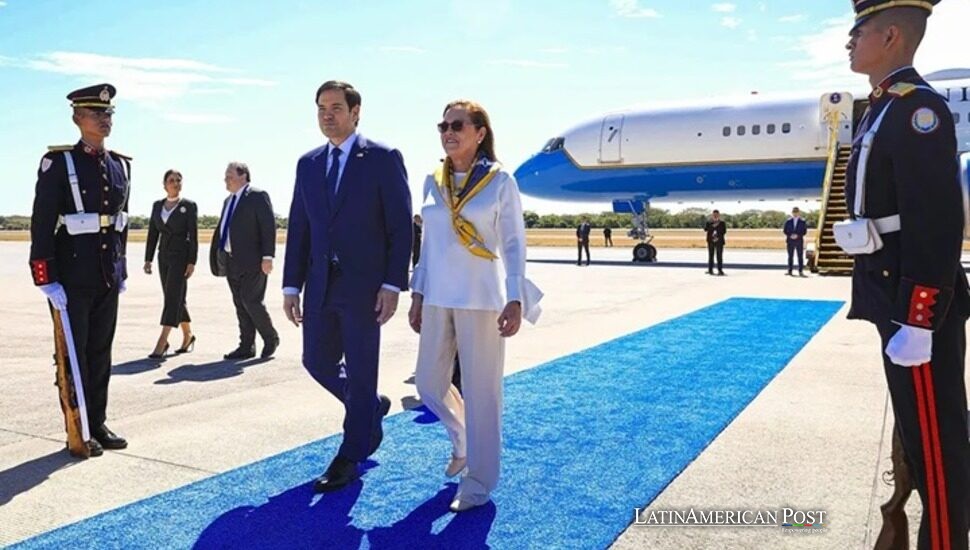El Salvador Strengthens U.S. Ties Through Security and Migration Deal

El Salvador’s offer to receive deportees of different nationalities along with U.S. detainees, shows a fresh direction in building better relations with the United States. President Nayib Bukele’s plan presents a very practical method for jail improvements, immigrant supervision as well as two way teamwork, which suggests financial or safety advantages.
A Bold Move in International Security Cooperation
El Salvador proposes to accept deportees of various nationalities from the U.S. along with incarcerated American citizens, which shows a fresh approach to international security cooperation. Under President Nayib Bukele’s leadership, the country has demonstrated its ability to manage large-scale incarceration efforts with efficiency, making it a natural candidate for such an agreement. A move improves El Salvador’s global status as well as builds better connections with the U.S. by offering a real fix to jail crowding or illegal border crossing problems.
The offer to hold dangerous criminals – like MS-13 or Tren de Aragua members – proves how Bukele leads his nation in crime control. His approach aligns with his battle against gang violence, which made El Salvador one of Latin America’s most secure regions. A successful war on crime earned him local admiration as well as international recognition, making his nation key to U.S. security cooperation.
The agreement fits Bukele’s broader security reforms. After his 2022 emergency measures he ordered mass detentions or really reduced criminal stats. Some critics question civil liberties but no one disputes how his policies restored calm. The U.S. partnership shows his commitment to law next to order turning El Salvador into a model for other nations that combat gangs or illegal groups.
The U.S. sees this deal as a chance to fix several local problems at once. Moving inmates abroad helps reduce packed jails while keeping dangerous criminals in very secure places. This fresh approach could save money as well as make things safer, which shows how countries working together helps fight crime across borders.
Economic Gains for El Salvador and the U.S.
Beyond its security implications, El Salvador’s proposal offers significant economic advantages for both countries. Bukele’s suggestion that the U.S. could “outsource part of its prison system” to the Centro de Confinamiento del Terrorismo (CECOT) presents a unique financial opportunity. The 40,000-capacity correctional center, which stands out for its tight security systems, has potential to become a self funded site through U.S. government compensation.
A deal of this type would create vital income for El Salvador to maintain or expand its detention facilities. The benefits would cut costs for local citizens as well as release public funds for essential sectors like schools, medical care and public works. Money from such a contract would back Bukele’s financial plans which have drawn funds to tech or tourism projects.
The U.S. would really cut expenses by moving inmates overseas. A high security jail in America costs over $40,000 yearly per person. The transfer to El Salvador with its reduced running costs presents a money saving option. Success in this plan could lead other nations to follow suit or create similar deals, which would change how prisons work across borders.
The partnership could grow in other ways. Just like the civil nuclear deal signed when U.S. Secretary of State Marco Rubio visited El Salvador, bilateral ties have now reached new areas. Added teamwork in power supply, tech, and commerce could improve economic bonds between both countries or create lasting advantages for each side.
A Humanitarian and Migration Solution
El Salvador’s plan to receive deportees from all nations, even people turned away by their countries, presents a fresh way to handle migration issues. The United States faces problems when deporting people whose nations refuse to accept them back. A similar plan could help solve these roadblocks and offer safety for people stuck without legal options.
The possible “safe third country” deal to move declined asylum seekers from the U.S. to El Salvador could ease the load on immigration offices. This option for a new place to live might reduce overcrowding at border sites. The deal lets people start over in a place that has made real progress in safety or job creation.
The Bukele administration proved effective at bringing different segments of people into El Salvador’s job market. A well funded system for housing or skill development next to employment initiatives could transform the nation into a favorable destination for returning citizens. The strategy shows promise to gain backing from international organizations as well as aid the nation’s development.
A well-planned approach to migration makes El Salvador an essential ally for local peace. The deal aids U.S. deportation efforts or helps establish El Salvador as a guide in migration rules.
Strengthening U.S.-El Salvador Relations
The pact signifies significant progress in U.S.-El Salvador relations or shows how nations collaborate on vital international matters. Past governments in El Salvador had trouble keeping good links with Washington, but Bukele turned his country into a steady U.S. ally in terms of safety and business matters.
The close relationship with U.S. representatives next to President Trump shows his focus on results rather than political divisions. These deals display his skill to create practical agreements that help both countries plus establish his position in Latin American leadership. A link to El Salvador aligns with America’s plans for Central America. As power shifts increase, solid bonds with essential allies like El Salvador turn vital. The security or migration deal proves how teamwork solves shared problems, from crime to border control plus trade growth.
Also Read: Brazil Has Lost a Third of its Natural Areas
The agreement also creates paths for future work in drug prevention, info sharing along with defense plans. A direct connection lets both countries build better lives for citizens. A good result from these measures could lead to related deals elsewhere, which changes how countries approach prisons, removal or public protection work. The beneficial El Salvador-U.S. partnership just made a model for actual agreements between nations that face similar tasks.




